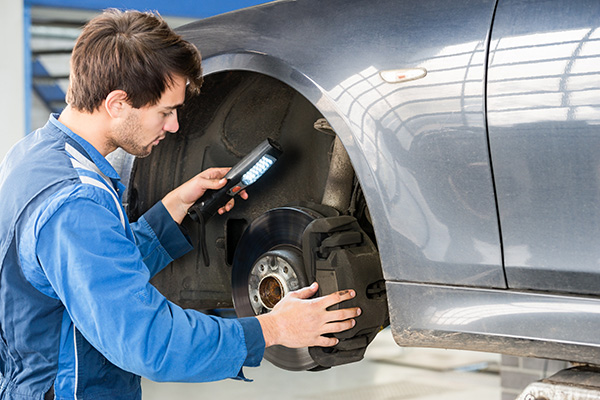
Driving is an everyday necessity for many of us, and ensuring our vehicle's safety is paramount. Among the most critical components of your car are the brakes. They are your first line of defense against accidents. So, how can you tell when your brakes need immediate attention? Ignoring the warning signs can lead to dangerous situations and costly repairs.
1. Squeaking or Squealing Noises
Have you ever heard a high-pitched squeal when you apply your brakes? This sound is a common indicator that your brake pads are wearing thin. Many brake pads come with built-in wear indicators that emit a squeaking noise to alert you that it's time for a replacement. Ignoring this sound can lead to the pads wearing down completely, resulting in metal-on-metal contact, which is much more expensive to fix.
When you hear this noise, it's best not to delay. Schedule a brake inspection as soon as possible. If caught early, you may only need to replace the brake pads. Delaying can lead to more severe damage to the rotors and other brake components, which means higher repair costs and more time in the shop.
2. Vibrations When Braking
If you feel a vibration or pulsation through the brake pedal when you apply the brakes, it's a clear sign something is wrong. This sensation often indicates that your brake rotors are warped. Warped rotors can occur from normal wear and tear, but they can also be a result of intense braking over time, which causes excessive heat buildup and leads to the warping.
Vibrations can compromise your vehicle's braking efficiency, making it harder to stop quickly. This poses a risk to your safety and that of other road users. Depending on the extent of the damage, addressing warped rotors typically involves either resurfacing them or replacing them altogether.
3. Spongy or Soft Brake Pedal
When you press down on your brake pedal, it should feel firm and responsive. This is a serious concern if the pedal feels spongy or sinks to the floor with little resistance. A soft brake pedal often points to air in the brake lines or a problem with the brake fluid, such as a leak.
Brake fluid is essential for the hydraulic pressure needed to stop your vehicle. If there's a leak or air has entered the lines, the brakes can fail to engage properly. This situation can escalate quickly, so getting your brakes inspected and repaired immediately is imperative if you notice a spongy pedal.
4. Grinding Noises
A grinding noise when braking is never a good sign. This typically indicates that your brake pads have completely worn down, and now the metal of the calipers is grinding against the metal of the rotors. This metal-on-metal contact can cause significant damage to your braking system, leading to expensive repairs.
Grinding can also indicate that debris or rust is caught in the brake components, but regardless of the cause, this noise warrants immediate attention. Driving with grinding brakes is dangerous and can result in brake failure. It's essential to address this issue right away to avoid further damage and ensure your vehicle is safe to drive.
5 Pulling to One Side
If your car pulls to one side when you apply the brakes, it's a sign that there's an imbalance in your braking system. This could be due to uneven brake pad wear, a stuck caliper, or issues with the brake fluid. Not only does this pulling affect your vehicle's stability, but it can also lead to uneven tire wear and reduce overall control.
Addressing a pulling issue promptly is crucial for maintaining your vehicle's handling and safety. A professional mechanic can diagnose the problem, whether it's a simple fix like replacing brake pads or a more involved repair like fixing a seized caliper.
Are your brakes making unusual noises? Don't wait! Bring your car to Precision Import Repair for a thorough brake inspection and ensure your safety. Schedule your appointment today!